Abstract
In each of two experiments, 2 pigeons received discrimination training in which food reinforcement for key pecking was conditional upon both spatial and temporal cues. In Experiment 1, food was available for periods of 30 s at each of three locations (pecking keys) during trials that lasted 90 s. In Experiment 2, food was available for periods of 15 min at each of four locations (pecking keys) during a 60-min trial. In both experiments, pigeons' key pecking was jointly controlled by the spatial and temporal cues. These data, and other recent experiments, suggest that animals learn relationships between temporal and spatial cues that predict stable patterns of food availability.
Keywords: spatial cues, temporal cues, time-place learning, foraging, key peck, pigeons
Full text
PDF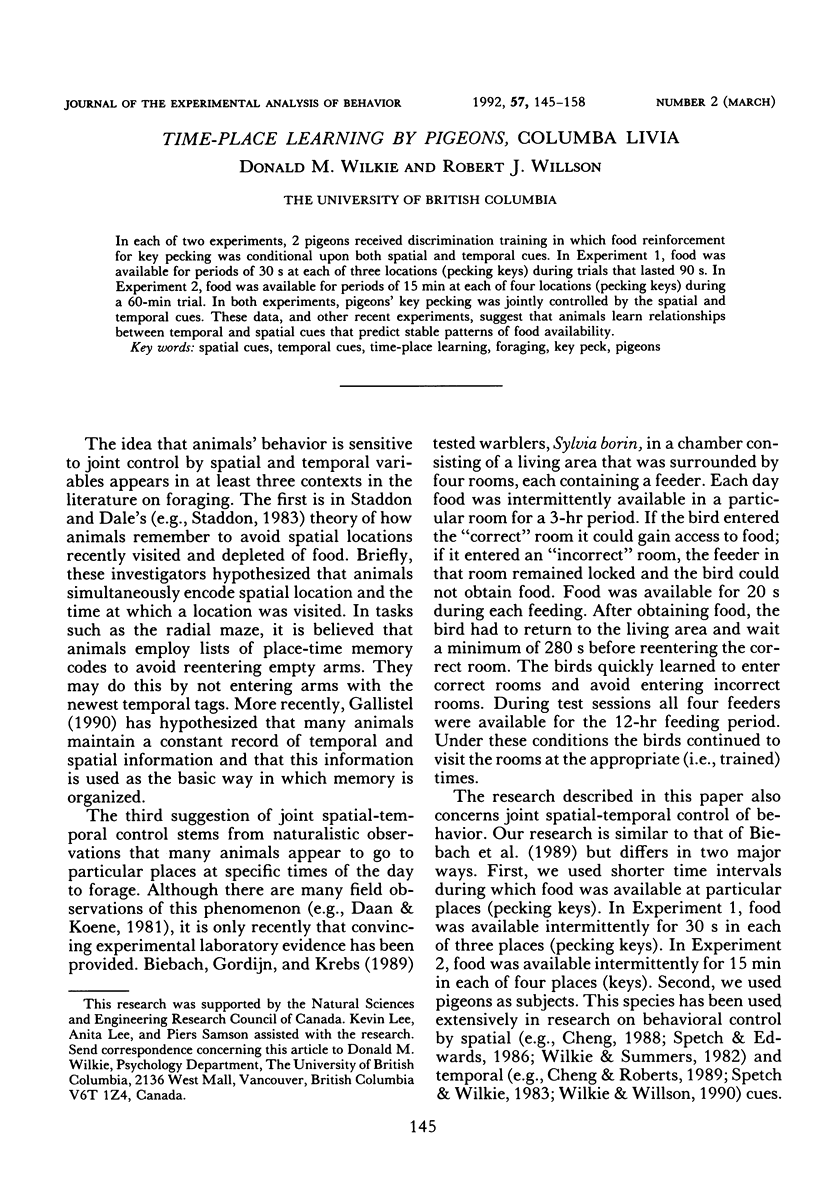
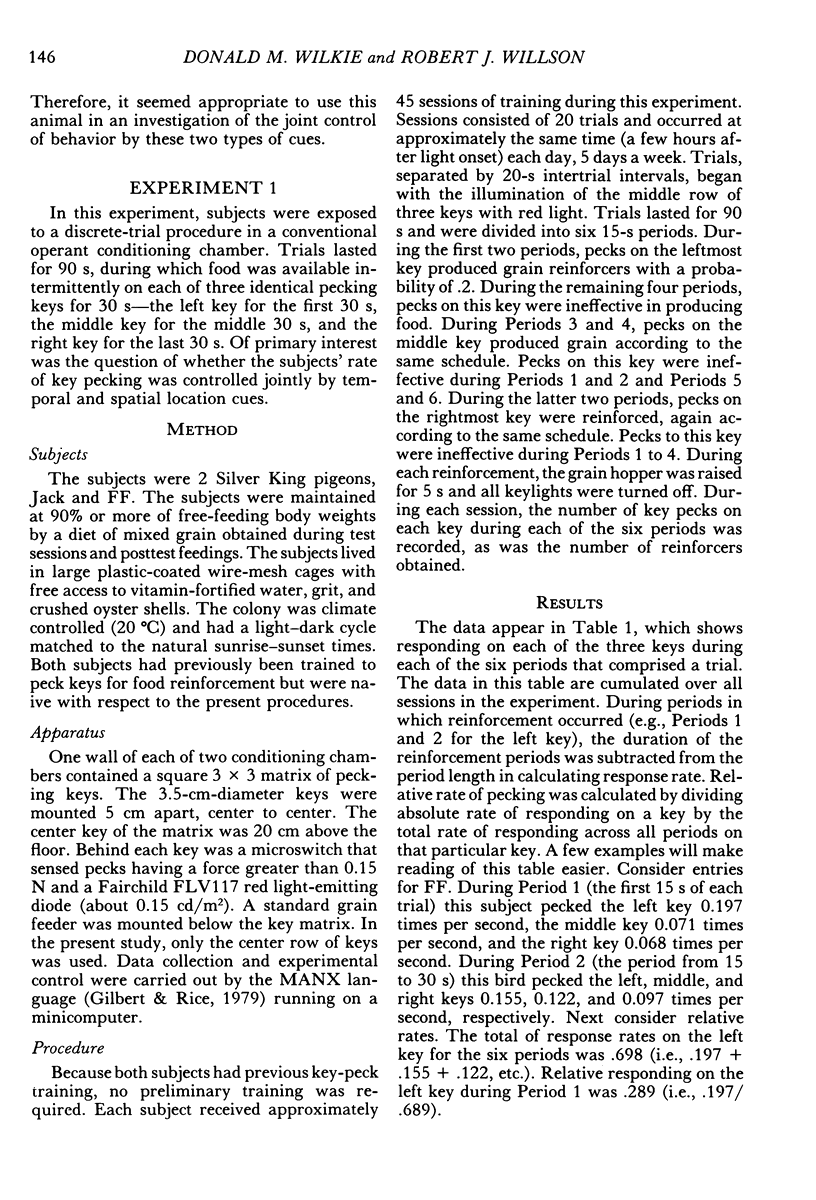
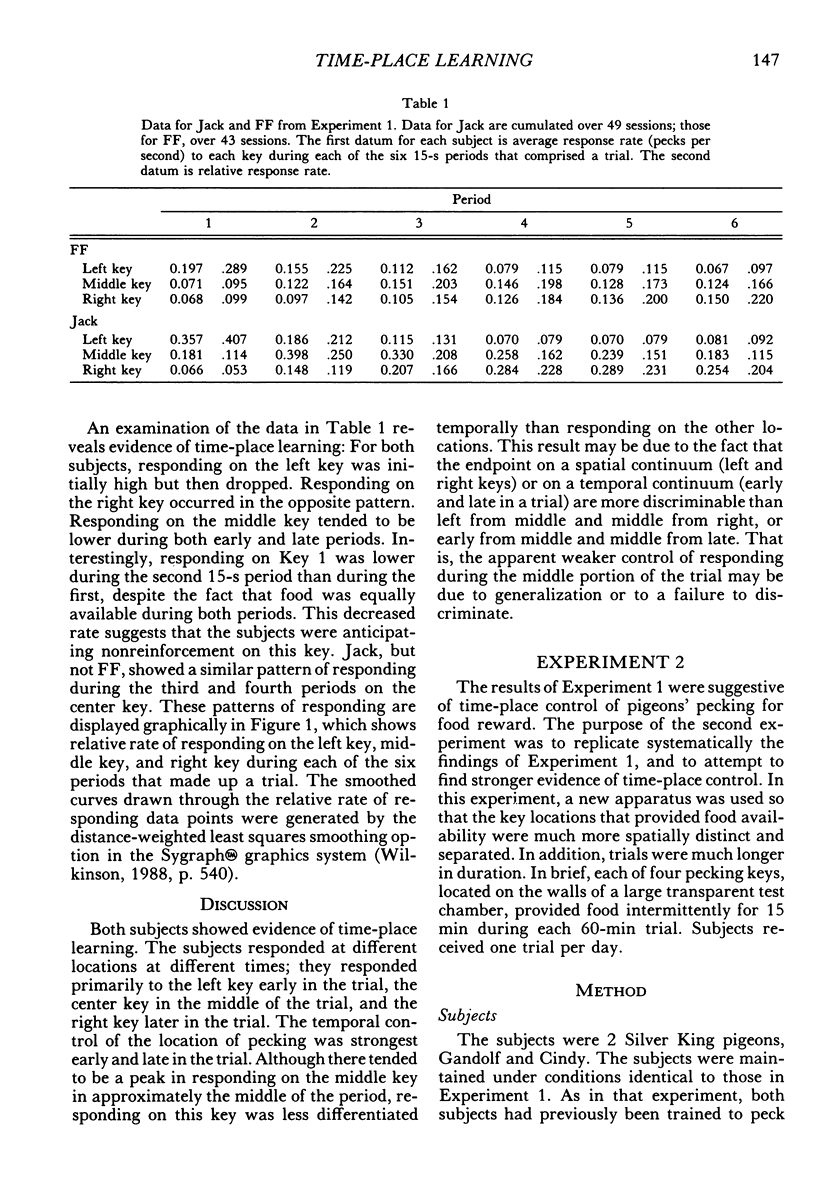
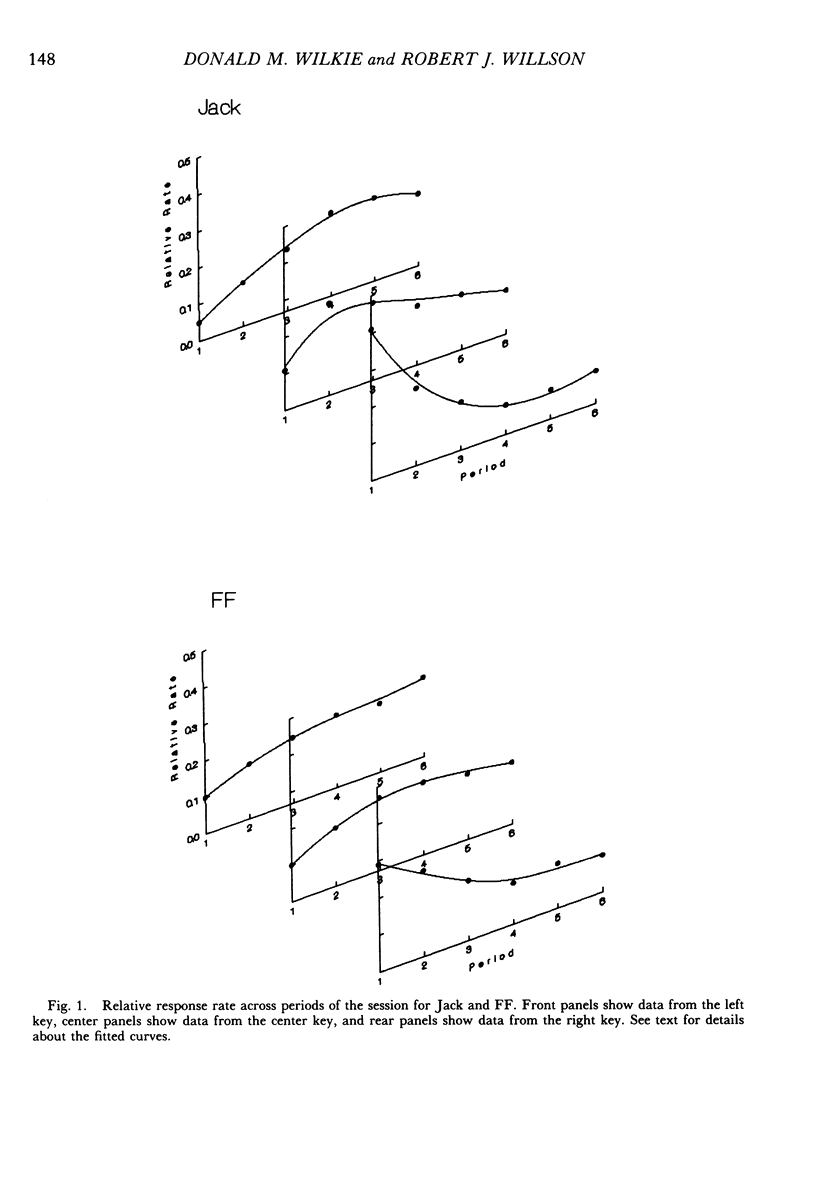
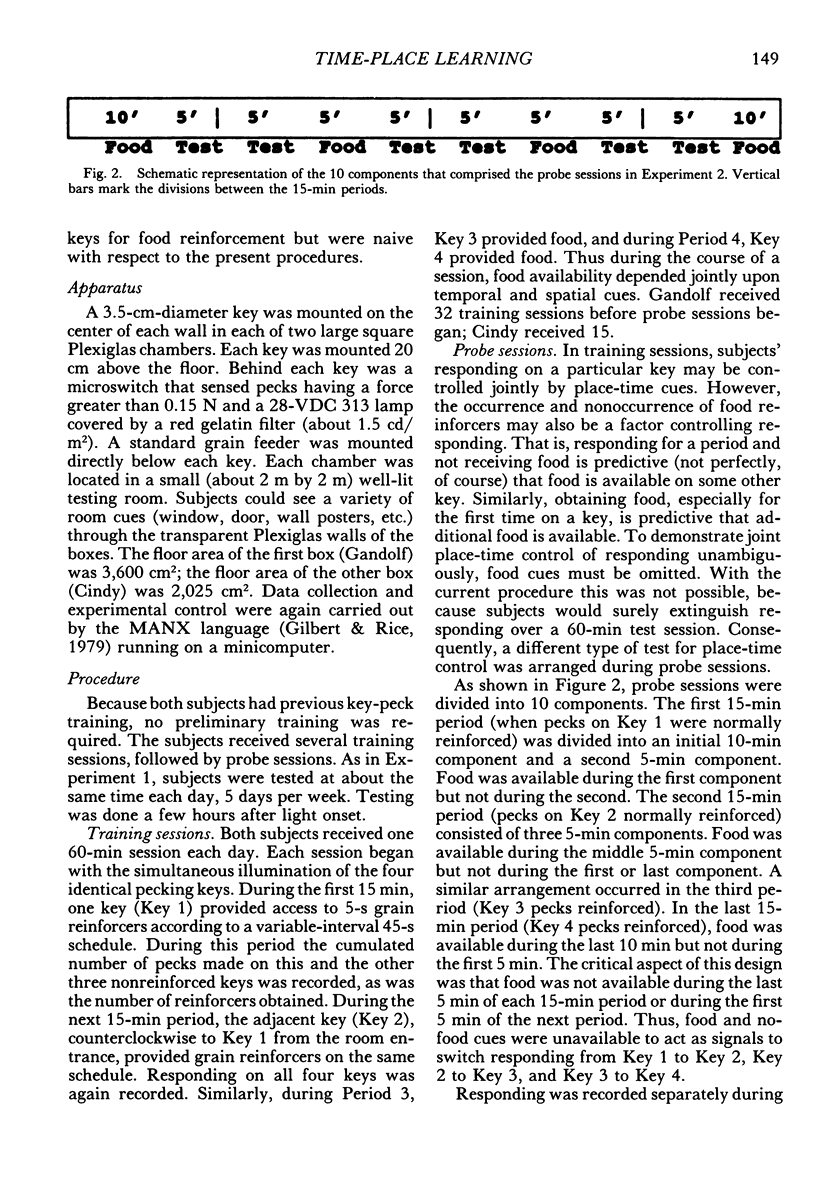
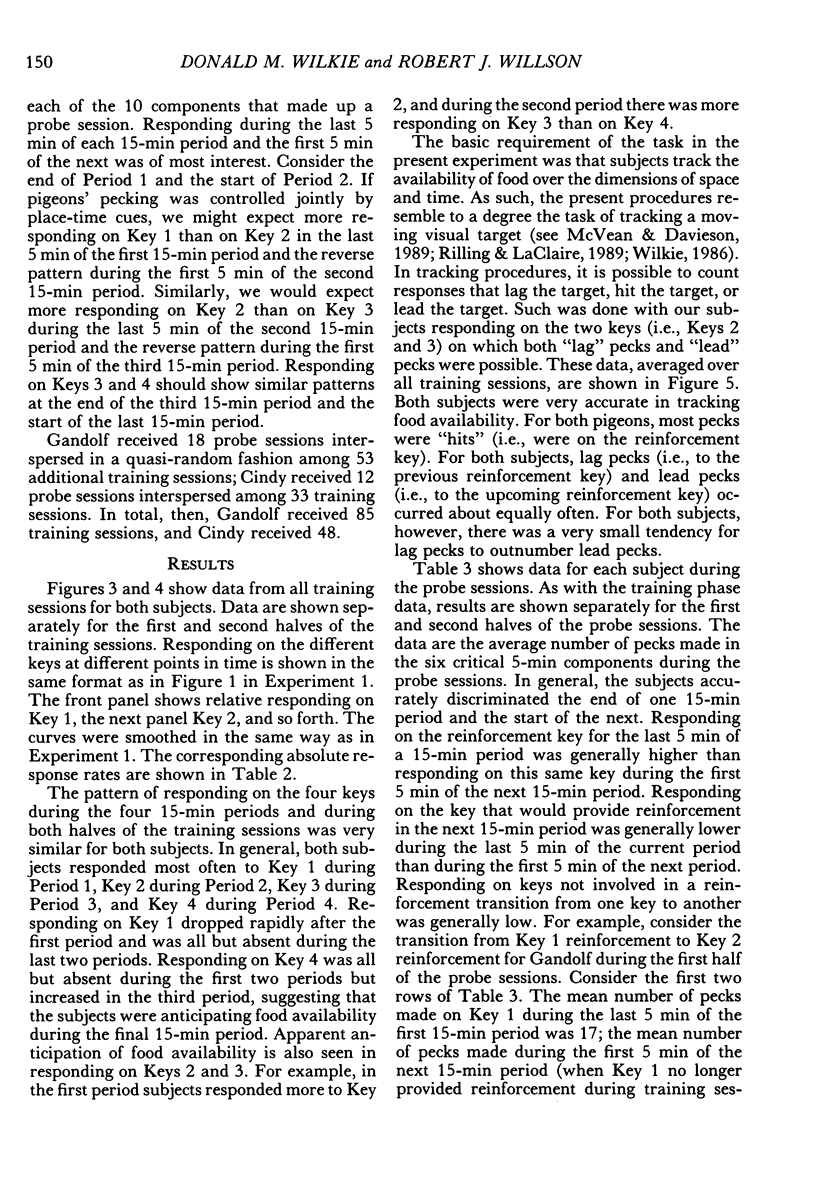
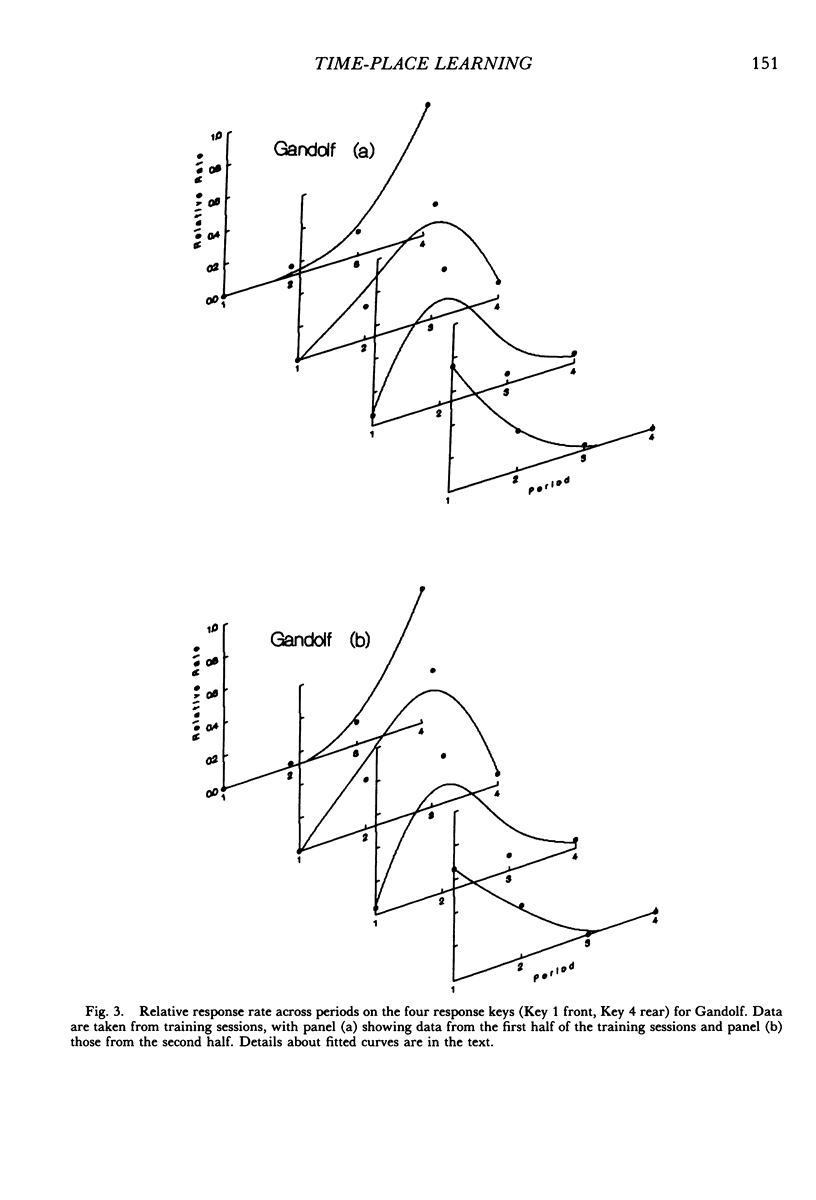
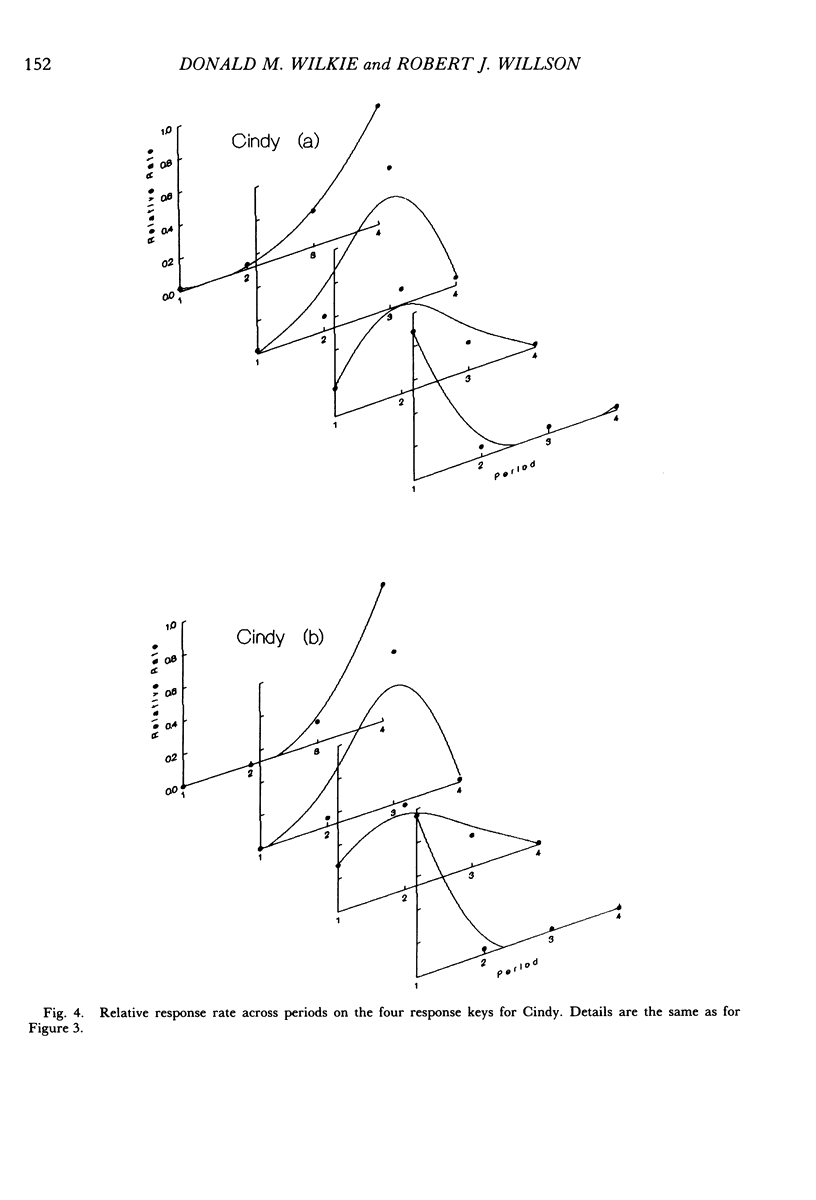
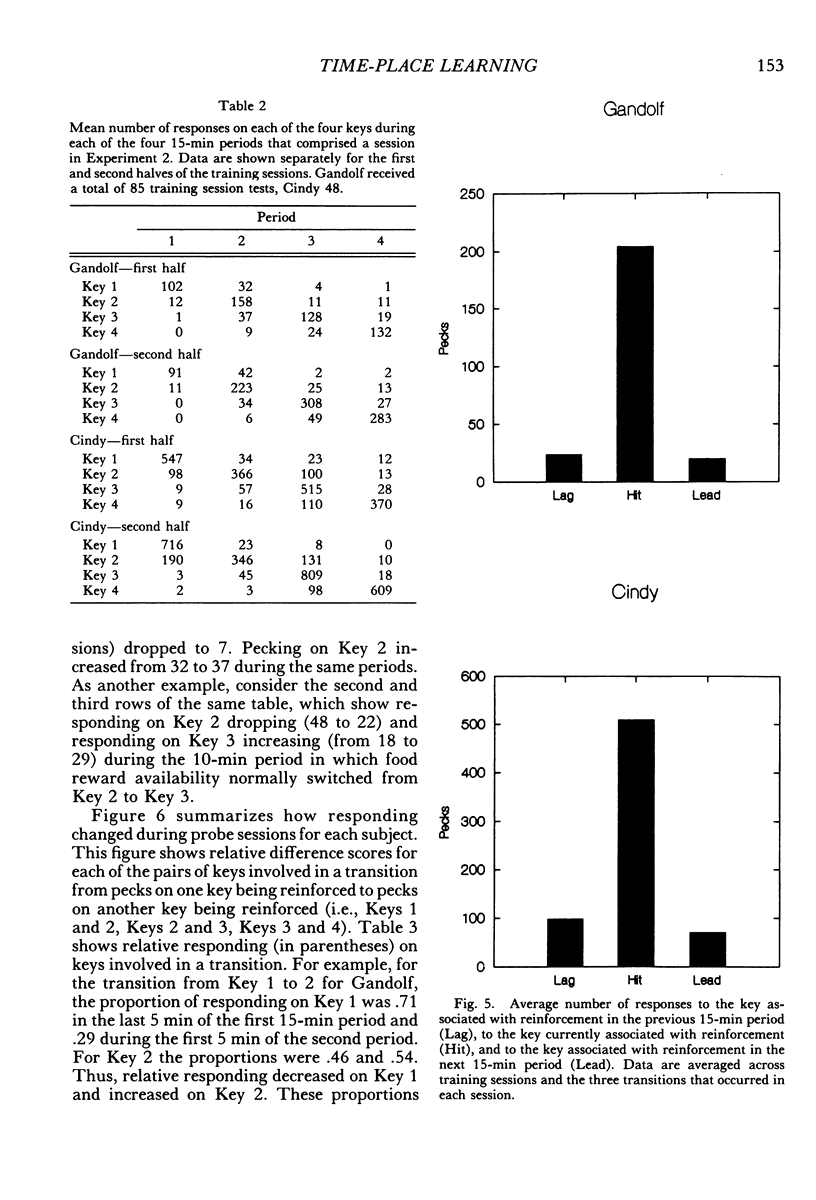
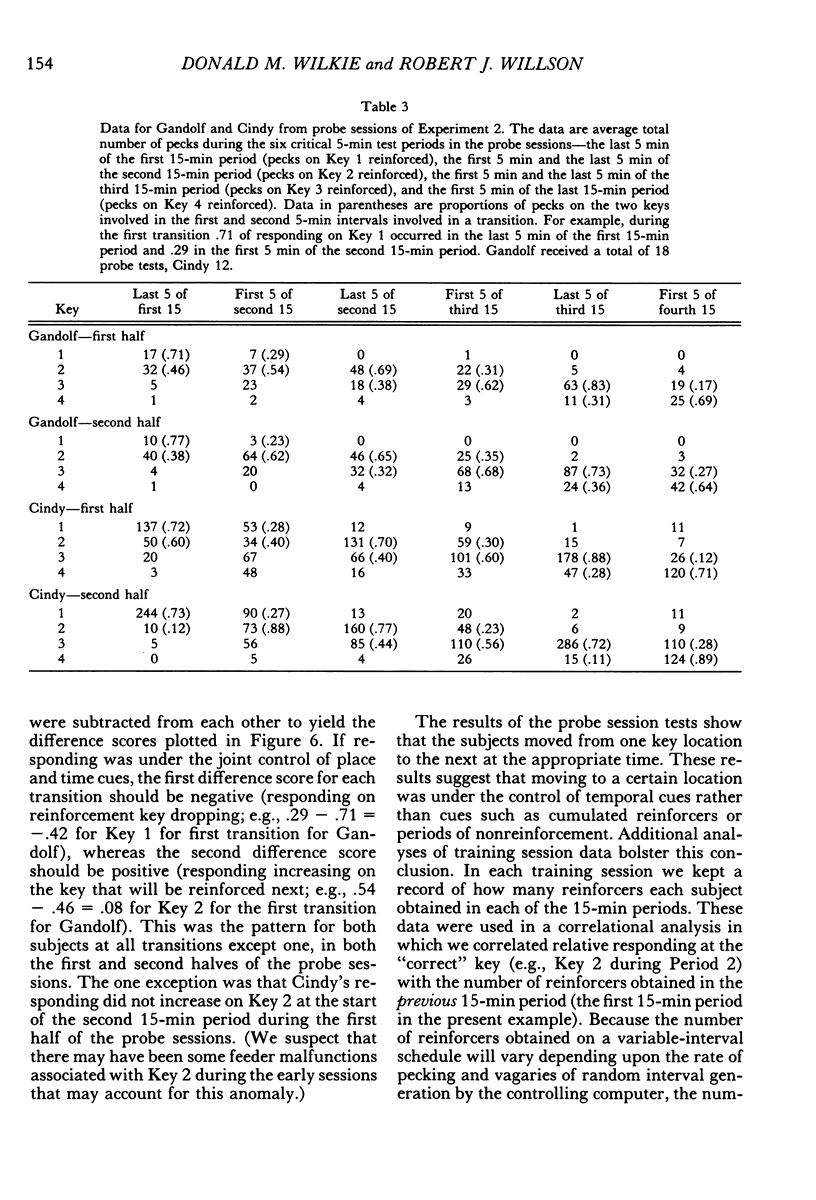
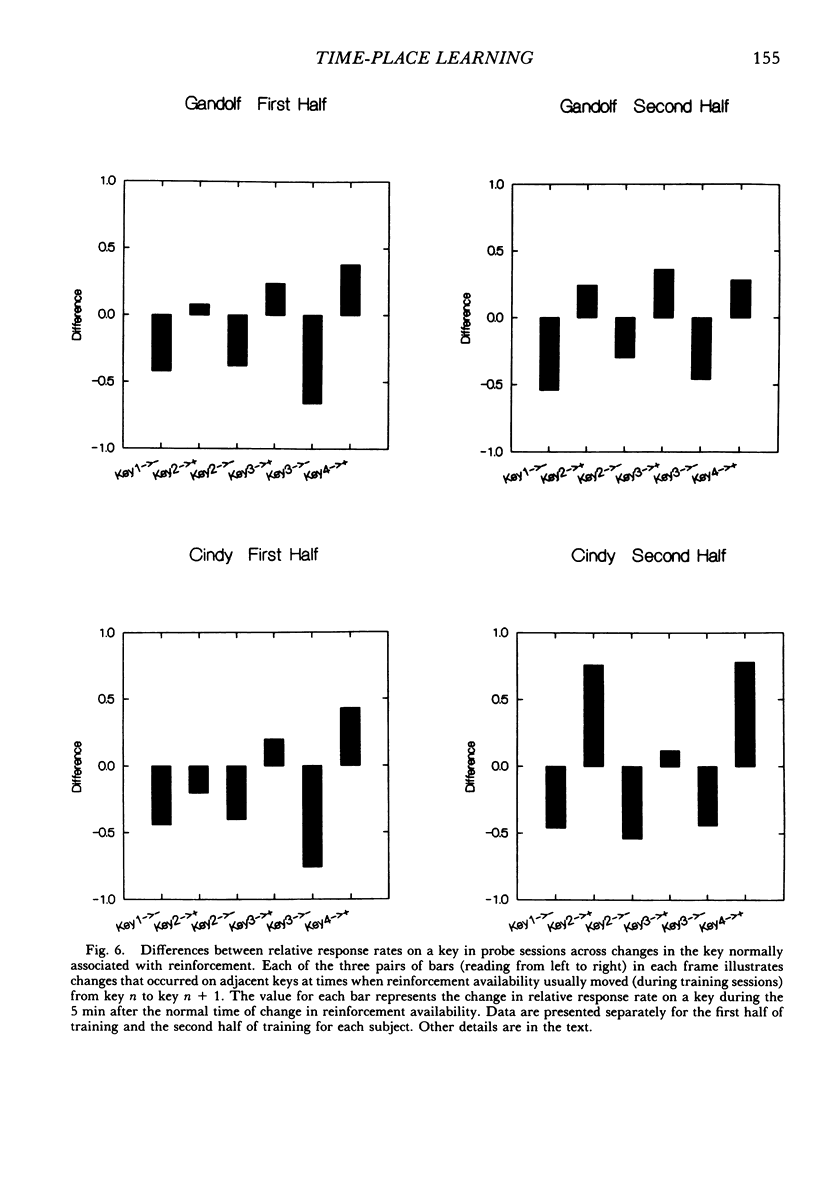
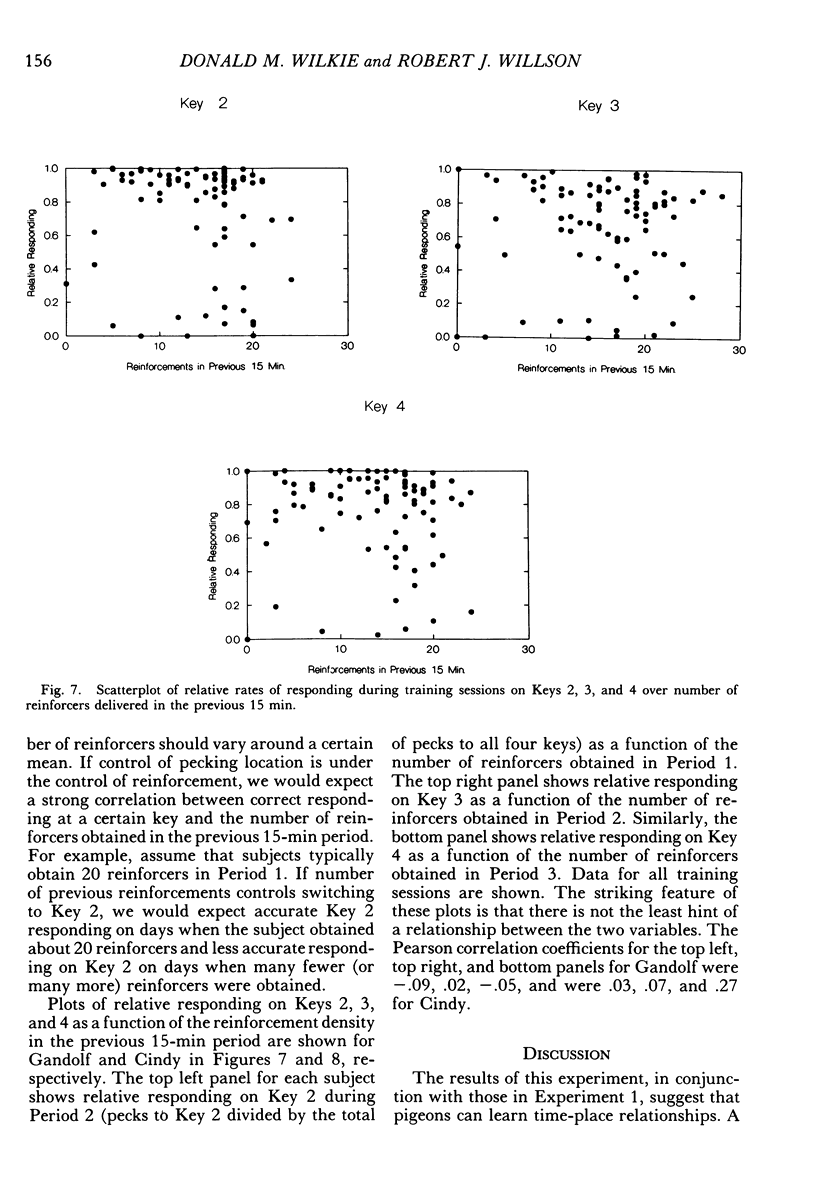
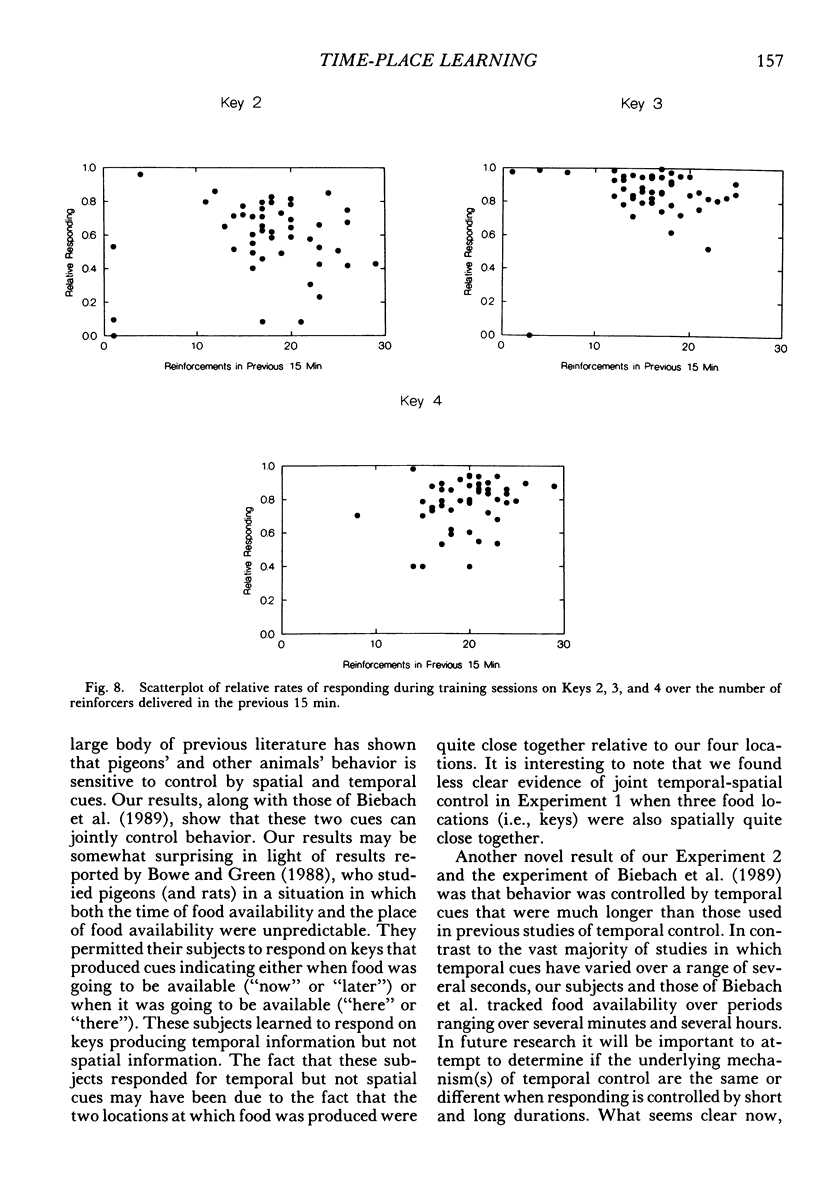
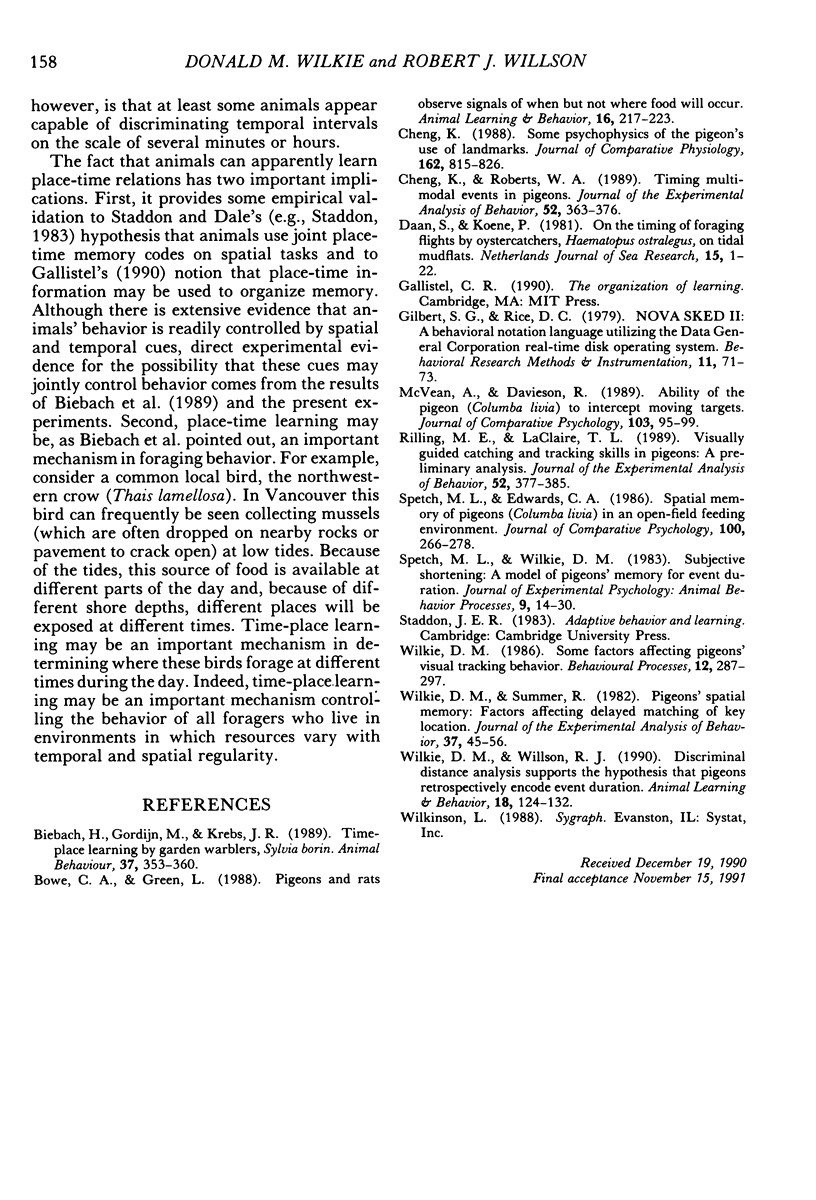
Selected References
These references are in PubMed. This may not be the complete list of references from this article.
- Cheng K., Roberts W. A. Timing multimodal events in pigeons. J Exp Anal Behav. 1989 Nov;52(3):363–376. doi: 10.1901/jeab.1989.52-363. [DOI] [PMC free article] [PubMed] [Google Scholar]
- Cheng K. Some psychophysics of the pigeon's use of landmarks. J Comp Physiol A. 1988 Apr;162(6):815–826. doi: 10.1007/BF00610970. [DOI] [PubMed] [Google Scholar]
- Rilling M. E., Laclaire T. L. Visually guided catching and tracking skills in pigeons: A preliminary analysis. J Exp Anal Behav. 1989 Nov;52(3):377–385. doi: 10.1901/jeab.1989.52-377. [DOI] [PMC free article] [PubMed] [Google Scholar]
- Wilkie D. M., Summers R. J. Pigeons' spatial memory: factors affecting delayed matching of key location. J Exp Anal Behav. 1982 Jan;37(1):45–56. doi: 10.1901/jeab.1982.37-45. [DOI] [PMC free article] [PubMed] [Google Scholar]


